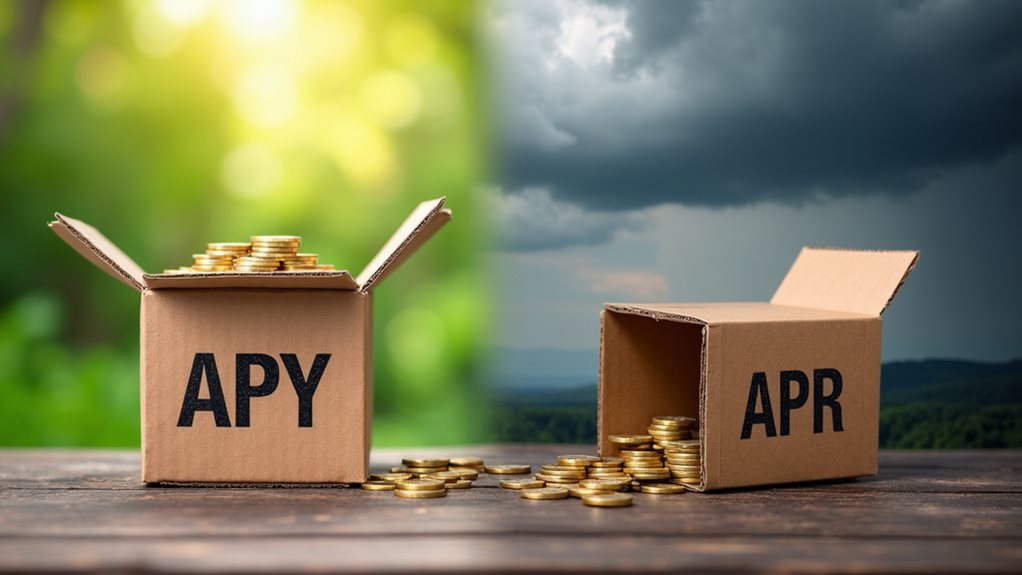Robinhood is not a decentralized platform – not even close. Despite offering a self-custody crypto wallet, the company maintains strict control over user funds and data through its centralized architecture. The platform's use of blockchain technology is superficial at best, with limited functionality and no real decentralized finance integration. While CEO statements hint at future DeFi ambitions, regulatory hurdles and the platform's core structure keep Robinhood firmly in centralized territory. The full story reveals an interesting tension between control and innovation.

When it comes to decentralization, Robinhood isn't even close. The popular trading platform talks a big game about democratizing finance, but let's get real – it's about as decentralized as a military command center. Robinhood maintains iron-grip control over user funds through its custodial service, meaning they hold the keys to your kingdom. Not exactly the financial freedom revolution they advertise.
The platform's architecture is fundamentally centralized, period. While they've dabbled in blockchain technology, they're using it like a teenager with a Ferrari – all show, no go. The main Robinhood wallet keeps your assets under their watch, managing private keys and data with the kind of centralized control that would make a dictator proud. The centralized storage of user data creates serious privacy and security risks. Starting with as little as one dollar investment, the platform makes trading accessible but remains firmly centralized. Unlike true blockchain infrastructure, Robinhood's platform lacks the transparent, distributed ledger system that enables decentralized operations. The risk of irreversible losses due to platform vulnerabilities remains a significant concern for users.
Sure, blockchain tech could enable 24/7 trading and better efficiency, but Robinhood's implementation barely scratches the surface.
Robinhood's half-hearted blockchain adoption misses huge opportunities for round-the-clock trading and operational improvements.
There's a plot twist though – Robinhood does offer a self-custody wallet that's different from their main platform. This wallet actually lets users control their private keys and access decentralized exchanges for crypto swaps. It's like finding a democracy in a dictatorship – a rare glimpse of true user autonomy in Robinhood's otherwise tightly controlled ecosystem.
Regulatory hurdles aren't making things easier. U.S. securities laws are about as flexible as a brick wall when it comes to connecting crypto with traditional assets. These restrictions have Robinhood playing it safe, keeping their platform more centralized than a spider's web.
The CEO keeps hinting at grand visions of using crypto infrastructure for traditional assets, but for now, it's just talk.
Looking ahead, Robinhood's CEO dreams of leveraging DeFi tools for noncustodial trading experiences. Nice thought, but currently, there's zero truly decentralized components in their main platform. They're using blockchain technology like a hammer to nail jello to a wall – it's there, but it's not doing what it could.
The platform remains steadfastly centralized, with no real integration of decentralized finance tools or governance.
The bottom line? Robinhood is about as decentralized as a one-man band. While they've made some moves toward user autonomy with their self-custody wallet, the main platform remains firmly under centralized control. Until they fully embrace true decentralization – where users control their assets and data without a middleman – Robinhood will stay exactly what it is: a centralized trading platform with a sprinkling of blockchain on top.
Frequently Asked Questions
How Does Robinhood Make Money if They Don't Charge Trading Fees?
Robinhood's money-making game is pretty clever.
They make most of their cash (72.8%) through Payment for Order Flow – basically selling user trades to market makers. Smart, right?
They also rake in cash from margin loan interest, their Gold subscription service, and interest on users' uninvested money.
Oh, and those debit card swipe fees add up too.
No trading fees? No problem. They've found other ways to keep the lights on.
Can International Users Trade Stocks and Cryptocurrencies on Robinhood?
Robinhood's international access is pretty limited.
Right now, they're only serving U.S. residents, with fresh expansion into the U.K. and EU. U.K. users can trade U.S. stocks, while EU folks get cryptocurrency access only.
That's it. No Asia yet, though they're eyeing Singapore for 2025. Sorry, rest of the world – you'll have to wait.
Americans get the full package: stocks, ETFs, options, and crypto trading.
What Happens to My Investments if Robinhood Goes Bankrupt?
If Robinhood goes belly-up, investors' assets are pretty well protected.
SIPC coverage guarantees up to $500,000 for securities and $250,000 for cash – not too shabby. Plus, there's that fancy Lloyd's of London backup coverage for even more protection.
Assets typically get transferred to another brokerage within weeks. Sure, trading might freeze temporarily, and market values could bounce around, but the actual securities? They're safe.
Talk about sleeping well at night.
Does Robinhood Offer Trading Options for Penny Stocks?
Yes, Robinhood offers penny stock trading – but with a catch. They only allow trading of penny stocks listed on major exchanges like NYSE and Nasdaq.
No sketchy over-the-counter stuff here. These low-priced stocks are notoriously volatile and risky, often swinging wildly in price.
Users can trade them just like regular stocks through market or limit orders. Just don't expect fancy risk management tools – Robinhood keeps it basic.
How Long Does It Take to Withdraw Money From Robinhood?
Withdrawing money from Robinhood isn't instant – shocking, right? Stock sales take 1-2 trading days to settle.
Then there are two main options: standard ACH transfers (5-7 business days, free) or Instant Transfers (minutes, but comes with fees).
Daily withdrawal limit sits at $50,000. Weekend withdrawals? They'll use Friday's rates.
And yeah, fresh deposits need to settle first. Holidays can slow things down too.









